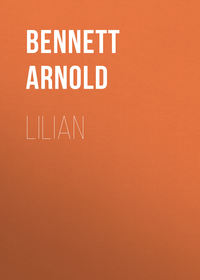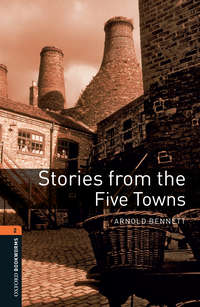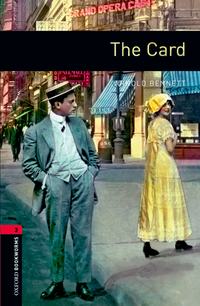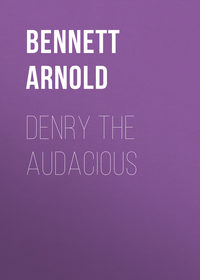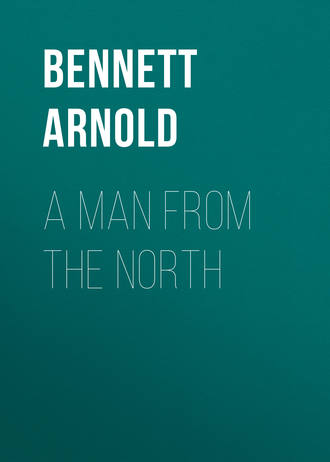 полная версия
полная версияA Man from the North
His fellow-diners seemed curiously to have degenerated, to have grown still narrower in their sympathies, still more careless in their eating, still more peculiar or shabbier in their dress. The young women of masculine aspect set their elbows on the table more uncompromisingly than ever, and the young men with soiled wristbands or no wristbands at all were more than ever tedious in their murmured conversations. It was, indeed, a bizarre company that surrounded him! Then he reflected that these people had not altered. The change was in himself. He had outgrown them; he surveyed them now as from a tower. He was a man with a future, using this restaurant because it suited him temporarily to do so, while they would use it till the end, never deviating, never leaving the rut.
"So you have come at last!" Miss Roberts said to him when he presented his check. "I was beginning to think you had deserted us."
"But it's barely a week since I saw you," he protested. "Let me wish you a happy New Year."
"The same to you." She flushed a little, and then: "What do you think of our new decorations? Aren't they pretty?"
He praised them perfunctorily, even without glancing round. His eyes were on her face. He remembered the reiterated insinuations of Jenkins, and wondered whether they had any ground of fact.
"By the way, has Jenkins been here to-day?" he inquired, by way of introducing the name.
"Is that the young man who used to come with you sometimes? No."
There was no trace of self-consciousness in her bearing, and Richard resolved to handle Jenkins with severity. Another customer approached the pay-desk.
"Well, good afternoon." He lingered.
"Good afternoon." Her gaze rested on him softly. "I suppose you'll be here again some time." She spoke low, so that the other customer should not hear.
"I'm coming every day now, I think," he answered in the same tone, with a smothered laugh. "Ta-ta."
That night at half-past seven he began his novel. The opening chapter was introductory, and the words came without much effort. This being only a draft, there was no need for polish; so that when a sentence refused to run smoothly at the first trial, he was content to make it grammatical and leave it. He seemed to have been working for hours when a desire took him to count up what was already written. Six hundred words! He sighed the sigh of satisfaction, and looked at his watch, to find that it was exactly half-past eight. The discovery somewhat damped his felicity. He began to doubt whether stuff composed at the rate of ten words a minute could have any real value. Pooh! Sometimes one wrote quickly, and sometimes slowly. The number of minutes occupied was no index of quality. Should he continue writing? Yes, he would… No… Why should he? He had performed the task self-allotted for the day, and more; and now he was entitled to rest. True, the actual time of labour had been very short; but then, another day the same amount of work might consume three or four hours. He put away his writing-things, and searched about for something to read, finally lighting on "Paradise Lost." But "Paradise Lost" wanted actuality. He laid it aside. Was there any valid reason why he should not conclude the evening at the theatre? None. The frost had returned with power, and the reverberation of the streets sounded invitingly through his curtained windows. He went out, and walked briskly up Park Side. At Hyde Park Corner he jumped on an omnibus.
It was the first night of a new ballet at the Ottoman. "Standing-room only," said the man at the ticket-office. "All right," said Richard, and, entering, was greeted with soft music, which came to him like a fitful zephyr over a sea of heads.
CHAPTER XXIX
One Saturday afternoon towards the end of February, he suddenly decided to read through so much of the draft novel as was written; hitherto he had avoided any sort of revision. The resolve to accomplish five hundred words a day had been kept indifferently well, and the total stood at about fourteen thousand. As he wrote a very bold hand, the sheets covered made quite a respectable pile. The mere bulk of them cajoled him, in spite of certain misgivings, into an optimistic surmise as to their literary quality. Never before had he written so much upon one theme, and were the writing good or bad, he was, for a few moments, proud of his achievement. The mischief lay in the fact that week by week he had exercised less and still less care over the work. The phrase, "Anything will do for a draft," had come to be uttered with increasing frequency as an excuse for laxities of style and construction. "I will make that right in the revision," he had reassured himself, and had gone negligently forward, leaving innumerable crudities in the wake of his hurrying pen. During the last few days he had written scarcely anything, and perhaps it was a hope of stimulating a drooping inspiration by the complacent survey of work actually done that tempted him to this hazardous perusal.
He whistled as he took up the manuscript, as a boy whistles when going into a dark cellar. The first three pages were read punctiliously, every word of them, but soon he grew hasty, rushing to the next paragraph ere the previous one was grasped; then he began shamelessly to skip; and then he stopped, and his heart seemed to stop also. The lack of homogeneity, of sequence, of dramatic quality, of human interest; the loose syntax; and the unrelieved mediocrity of it all, horrified him. The thing was dry bones, a fiasco. The certainty that he had once more failed swept over him like a cold, green wave of the sea, and he had a physical feeling of sickness in the stomach… It was with much ado that he refrained from putting the whole manuscript upon the fire, and crushing it venomously into the flames with a poker. Then he steadied himself. His self-confidence was going, almost gone; he must contrive to recover it, and he sought for a way. (Where were now the rash exultations of the New Year?) It was impossible that his work should be irredeemably bad. He remembered having read somewhere that the difference between a fine and a worthless novel was often a difference of elaboration simply. A conscientious re-writing, therefore, might probably bring about a surprising amelioration. He must immediately make the experiment. But he had long since solemnly vowed not to commence the second writing till the draft was done; the moral value of finishing even the draft had then seemed to him priceless. No matter! Under stress of grievous necessity, that oath must be forsworn. No other course could save him from collapse.
He went out into the streets. The weather, fine and bright, suggested the earliest infancy of spring, and Piccadilly was full of all classes and all ages of women. There were regiments of men, too, but the gay and endless stream of women obsessed him. He saw them sitting in hansoms and private carriages and on the tops of omnibuses, niched in high windows, shining in obscurity of shops, treading the pavements with fairy step, either unattended or by the side of foolish, unappreciative males. Every man in London seemed to have the right to a share of some woman's companionship, except himself. As for those men who walked alone, they had sweethearts somewhere, or mothers and sisters, or they were married and even now on the way to wife and hearth. Only he was set apart.
A light descended upon him that afternoon. The average man and the average woman being constantly thrown into each other's society, custom has staled for them the exquisite privilege of such intercourse. The rustic cannot share the townsman's enthusiasm for rural scenery; he sees no matter for ecstasy in the view from his cottage door; and in the same way the average man and the average woman dine together, talk together, walk together, and know not how richly they are therein blessed. But with solitaries like Richard it is different. Debarred from fellowship with the opposite sex by circumstances and an innate diffidence which makes the control of circumstance impossible, their starved sensibilities acquire certain morbid tenderness. (Doubtless the rustic discerns morbidity in the attitude of the townsman towards the view from his cottage door.) Richard grasped this. In a luminous moment of self-revelation, he was able to trace the growth of the malady. From its first vague and fugitive symptoms, it had so grown that now, on seeing an attractive woman, he could not be content to say, "What an attractive woman!" and have done with it, but he needs must build a house, furnish a room in the house, light a fire in the room, place a low chair by the fire, put the woman in the chair, with a welcoming smile on her upturned lips – and imagine that she was his wife. And it was not only attractive women that laid the spell upon him. The sight of any living creature in petticoats was liable to set his hysterical fancy in motion. Every woman he met was Woman… Of the millions of women in London, why was he not permitted to know a few? Why was he entirely cut off? There they were: their silk skirts brushed him as they passed; they thanked him for little services in public vehicles; they ministered to him in restaurants; they sang to him at concerts, danced for him at theatres; touched his existence at every side – and yet they were remoter than the stars, unattainable as the moon… He rebelled. He sank in despair, and rose to frenzies of anger. Then he was a pathetic figure, and extended to himself his own pity, smiling sardonically at fate. Fate was the harder to bear because he was convinced that, at the heart of him, he was essentially a woman's man. None could enjoy the feminine atmosphere more keenly, more artistically than he. Other men, who had those delicious rights for which he longed in vain, assessed them meanly, or even scorned them… He looked back with profound regret to his friendship with Adeline. He dreamt that she had returned, that he had fallen in love with her and married her, that her ambitions were leading him forward to success. Ah! Under the incentive of a woman's eyes, of what tremendous efforts is a clever man not capable, and deprived of it to what deeps of stagnations will he not descend! Then he awoke again to the fact that he knew no woman in London.
Yes, he knew one, and his thoughts began to play round her caressingly, idealising and ennobling her. She only gave him his change daily at the Crabtree, but he knew her; there existed between them a kind of intimacy. She was a plain girl, possessing few attractions, except the supreme one of being a woman. She was below him in station; but had she not her refinements? Though she could not enter into his mental or emotional life, did she not exhale for him a certain gracious influence? His heart went forth to her. Her flirtations with Mr. Aked, her alleged dalliance with Jenkins? Trifles, nothings! She had told him that she lived with her mother and father and a younger brother, and on more than one occasion she had mentioned the Wesleyan chapel; he had gathered that the whole family was religious. In theory he detested religious women, and yet – religion in a woman … what was it? He answered the question with a man's easy laugh. And if her temperament was somewhat lymphatic, he divined that, once roused, she was capable of the most passionate feeling. He had always had a predilection for the sleeping-volcano species of woman.
CHAPTER XXX
Richard was soon forced to the conclusion that the second writing of his novel was destined to be a failure. For a few days he stuck doggedly to the task, writing stuff which, as he wrote it, he knew would ultimately be condemned. Then one evening he stopped suddenly, in the middle of a word, bit the penholder for a moment, and threw it down with a "Damn!" This sort of thing could not continue.
"Better come up and see my new arrangements at Raphael Street to-night," he said to Jenkins the next day. He wanted a diversion.
"Any whisky going?"
"Certainly."
"Delighted, I'm sure," said Jenkins, with one of his ridiculous polite bows. He regarded these rare invitations as an honour; it was more than six months since the last.
They drank whisky and smoked cigars which Jenkins had thoughtfully brought with him, and chattered for a long time about office matters. And then, as the cigar-ash accumulated, the topics became more personal and intimate. That night Jenkins was certainly in a serious vein; further, he was on his best behaviour, striving to be sympathetic and gentlemanly. He confided to Richard his aspirations. He wished to learn French and proposed to join a Polytechnic Institute for the purpose. Also, he had thoughts of leaving home, and living in rooms, like Richard. He was now earning twenty-eight shillings a week; he intended to save money and to give up all intoxicants beyond half a pint of bitter a day. Richard responded willingly to his mood, and offered sound advice, which was listened to with deference. Then the talk, as often aforetime, drifted to the subject of women. It appeared that Jenkins had a desire to "settle down" (he was twenty-one). He knew several fellows in the Walworth Road who had married on less than he was earning.
"What about Miss Roberts?" Richard questioned.
"Oh! She's off. She's a bit too old for me, you know. She must be twenty-six."
"Look here, my boy," said Richard, good-humouredly. "I don't believe you ever had anything to do with her at all. It was nothing but boasting."
"What will you bet I can't prove it to you?" Jenkins retorted, putting out his chin, an ominous gesture with him.
"I'll bet you half-a-crown – no, a shilling."
"Done."
Jenkins took a leather-case from his pocket, and handed Richard a midget photograph of Miss Roberts. Underneath it was her signature, "Yours sincerely, Laura Roberts."
Strange to say, the incident did not trouble Richard in the least.
He walked down to Victoria with Jenkins towards midnight, and on returning to his lodging, thought for the hundredth time how futile was his present mode of existence, how bare of all that makes life worth living. Of what avail to occupy pretty rooms, if one occupied them alone, coming into them at night to find them empty, leaving them in the morning without a word of farewell? In the waste of London, Laura Roberts made the one green spot. He had lost interest in his novel. On the other hand, his interest in the daily visit to the Crabtree was increasing.
As day succeeded day he fell into a practice of deliberately seeking out and magnifying the finer qualities in her nature, while ignoring those which were likely to offend him; indeed he refused to allow himself to be offended. He went so far as to retard his lunch-hour permanently, so that, the rush of customers being past, he should have better opportunity to talk to her without interruption. Then he timidly essayed the first accents of courtship, and finding his advances accepted, grew bolder. One Sunday morning he met her as she was coming out of the Wesleyan chapel at Munster Park; he said the encounter was due to accident. She introduced him to her relations, who were with her. Her father was a big, stout, dark man, dressed in black faced-cloth, with a heavy beard, huge chubby fingers, and jagged grey fingernails. Her mother was a spare woman of sorrowful aspect, whose thin lips seldom moved; she held her hands in front of her, one on the top of the other. Her brother was a lank schoolboy, wearing a damaged mortar-board hat.
Shortly afterwards he called on her at Carteret Street. The schoolboy opened the door, and after inviting him as far as the lobby, vanished into a back room only to reappear and run upstairs. Richard heard his loud, agitated whisper: "Laura, Laura, here's Mr. Larch come to see you."
They strolled to Wimbledon Common that night.
His entity seemed to have become dual. One part of him was willingly enslaved to an imperious, headstrong passion; the other stood calmly, cynically apart, and watched. There were hours when he could foresee the whole of his future life, and measure the bitter, ineffectual regret which he was laying up; hours when he admitted that his passion had been, as it were, artificially incited, and that there could be no hope of an enduring love. He liked Laura; she was a woman, a balm, a consolation. To all else he obstinately shut his eyes, and, casting away every consideration of prudence, hastened to involve himself more and more deeply. Swiftly, swiftly, the climax approached. He hailed it with a strange, affrighted joy.
CHAPTER XXXI
They were upon Chelsea Embankment in the late dusk of a Saturday evening in May. A warm and gentle wind stirred the budding trees to magic utterances. The long, straight line of serried lamps stretched away to an enchanted bridge which with twinkling lights hung poised over the misty river. The plash of an oar came languorously up from the water, and the voices of boys calling. At intervals, couples like themselves passed by, either silent or conversing in low tones that seemed to carry inner, inarticulate meanings. As for them, they were silent; he had not her arm, but they walked close together. He was deeply and indescribably moved; his heart beat heavily, and when he looked at her face in the gloom and saw that her eyes were liquid, it beat yet more heavily; then lay still.
"Let us sit down – shall we?" he said at length, and they turned to an empty bench under a tree. "What is she thinking?" he wondered, and then the dominant feeling of the moment possessed him wholly. His ambitions floated out of sight and were forgotten. He remembered nothing except the girl by his side, whose maddening bosom rose and fell under his very gaze. At that moment she belonged to no class; had no virtues, no faults. All the inessentials of her being were stripped away, and she was merely a woman, divine, desired, necessary, waiting to be captured. She sat passive, expectant, the incarnation of the Feminine.
He took her hand and felt it tremble. At the contact a thrill ran about him, and for a second a delicious faintness robbed him of all strength. Then with inexplicable rapidity his mind went unerringly back to that train-journey to William's funeral. He saw the cottage in the fields, and the young mother, half robed and with sleep in her eyes, standing at the door. Exquisite vision!
He heard himself speaking, —
"Laura…"
The little hand gave a timorous encouragement.
"Laura … you are going to marry me."
The intoxicating pressure of her lips on his was answer. Heedless of publicity, he crushed her against his breast, this palpitating creature with the serious face. Ah, she could love!
It was done. The great irretrievable moment had gone to join a million other moments of no significance. He felt triumphant, fiercely triumphant. His frightful solitude was at an end. One woman was his. A woman … his, his own!
See! A tear quivered in her eye.
CHAPTER XXXII
Sunday was stiflingly hot. At Sloane Street the roof of every Putney omnibus was already laden with passengers, and Richard on his way to Carteret Street to make the acquaintance of Laura's married sister, Milly Powell, her husband and young child, was forced at last to be content with a seat inside. The public houses were just closing for the afternoon, and the footpaths full of holiday-makers, with here and there a girl or a middle-aged man carrying a Bible. No vehicles were abroad except the omnibuses and an occasional hired carriage which passed by with a nonchalant, lazy air.
At the Redcliffe Arms there got in a little family party consisting of a stout, seemingly prosperous man, gruffly good-humoured, his wife, and a boy of about three years, whose puffy face was disfigured by large spectacles.
"Sit here, Milly, out of the sun," the man said curtly.
Richard looked up at the sound of the name. The woman's likeness to Laura was unmistakable; beyond doubt she must be the sister of his betrothed. He examined her curiously. She was perhaps slightly under thirty, of a good height and well set, with a large head and a large, plain face. Her movements were clumsy. She appeared to be just upon the line which divides the matron from the young mother. In both her features and her attire there were faint reminders of girlish grace, or at least of the charm of the shy wife who nurses her first-born. Her complexion was clear and fresh, her ears small and delicately pink, her eyes cool grey. But one did not notice these beauties without careful inspection, while the heavy jaws, the lax eyelids, the flattened nose whose tilt unpleasantly revealed the nostrils, were obvious and repellent. She wore a black gown, which fitted badly, imparting an ungainliness probably foreign to her proper figure. Her broad hat of black straw, trimmed with poppies and corn-flowers, was strikingly modish, and the veil, running at an angle from the extremity of the brim down to her chin, gave to her face a cloistered quality which had its own seductiveness. Her small hands were neatly gloved, and held a cheap, effective parasol. The woman's normal expression was one of cow-like vacancy, but now and then her eyes would light up as she spoke to the child, gently restraining it, reassuring it, rallying it with simple banter. She was still in love with her husband; frequently she glanced at him with furtive wistfulness. She was able to enjoy the summer weather. She was not quite dead to the common phenomena of the roadside. But the last resistances of departing youthfulness and vivacity against the narcotic of a dull, unlovely domesticity were taking place. In a year or two she would be the typical matron of the lower middle-class.
When Richard had made these observations, he reflected: "Laura will be like that – soon." Mentally he compared the two faces, and he could, as it were, see Laura's changing…
Then followed a reverie which embraced the whole of his past life. He recognised that, while he bore all the aspect of prosperity, he had failed. Why had nature deprived him of strength of purpose? Why could not he, like other men, bend circumstances to his own ends? He sought for a reason, and he found it in his father, that mysterious, dead transmitter of traits, of whom he knew so little, and on whose name lay a blot of some kind which was hidden from him. He had been born in the shadow, and after a fitful struggle towards emergence, into the shadow he must again retire. Fate was his enemy. Mary had died; Mary would have helped him to be strong. Mr. Aked had died; Mr. Aked's inspiring influence would have incited and guided his efforts. Adeline had abandoned him to a fatal loneliness.
He knew that he would make no further attempt to write. Laura was not even aware that he had had ambitions in that direction. He had never told her, because she would not have understood. She worshipped him, he felt sure, and at times he had a great tenderness for her; but it would be impossible to write in the suburban doll's-house which was to be theirs. No! In future he would be simply the suburban husband – dutiful towards his employers, upon whose grace he would be doubly dependent; keeping his house in repair; pottering in the garden; taking his wife out for a walk, or occasionally to the theatre; and saving as much as he could. He would be good to his wife – she was his. He wanted to get married at once. He wanted to be master of his own dwelling. He wanted to have Laura's kiss when he went out of a morning to earn the bread-and-cheese. He wanted to see her figure at the door when he returned at night. He wanted to share with her the placid, domestic evening. He wanted to tease her, and to get his ears boxed and be called a great silly. He wanted to creep into the kitchen and surprise her with a pinch of the cheek as she bent over the range. He wanted to whisk her up in his arms, carry her from one room to another, and set her down breathless in a chair… Ah! Let it be soon. And as for the more distant future, he would not look at that. He would keep his eyes on the immediate foreground, and be happy while he could. After all, perhaps things had been ordered for the best; perhaps he had no genuine talent for writing. And yet at that moment he was conscious that he possessed the incommunicable imaginative insights of the author… But it was done with now.
The conductor called out their destination, and as Laura's sister gathered the child in her arms he sprang out and hurried down Carteret Street in order to reach the house first and so avoid a meeting on the doorstep. He heard the trot of the child behind him. Children… Perhaps a child of his might give sign of literary ability. If so – and surely these instincts descended, were not lost – how he would foster and encourage it!




